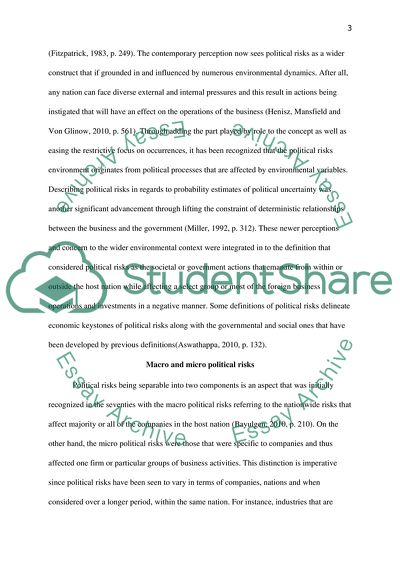Cite this document
(Essay on Political Risk Example | Topics and Well Written Essays - 2000 words, n.d.)
Essay on Political Risk Example | Topics and Well Written Essays - 2000 words. https://studentshare.org/politics/1876511-essay-on-political-risk
Essay on Political Risk Example | Topics and Well Written Essays - 2000 words. https://studentshare.org/politics/1876511-essay-on-political-risk
(Essay on Political Risk Example | Topics and Well Written Essays - 2000 Words)
Essay on Political Risk Example | Topics and Well Written Essays - 2000 Words. https://studentshare.org/politics/1876511-essay-on-political-risk.
Essay on Political Risk Example | Topics and Well Written Essays - 2000 Words. https://studentshare.org/politics/1876511-essay-on-political-risk.
“Essay on Political Risk Example | Topics and Well Written Essays - 2000 Words”. https://studentshare.org/politics/1876511-essay-on-political-risk.


